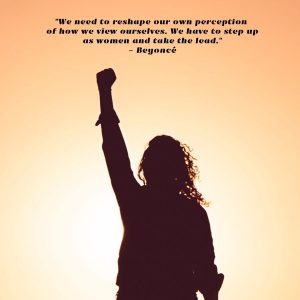《自律養生實踐家之旅319》 廚房那熟悉的背影

那個畫面,在我腦海裡停駐了很久。無論搬過幾次家、住過多少地方,廚房裡那個熟悉的背影,總是如影隨形。
那是一份沒有薪水的工作,卻是每一位默默擔起這份責任的人,最熱忱、最堅定的付出。
我記憶中的那個背影,始終是她。當然,我知道在有些家庭裡,站在那個位置的也可能是「他」。
因為家中有人從早到晚都需要用餐,她就從早忙到晚。而我最常看到那個畫面,是在晚餐前,有時也出現在陽光明媚的白天。
每當女性朋友自述自己的工作是「家庭主婦」,我腦中浮現的,就是那個背影,那個日復一日在廚房裡打轉的身影。
全世界只有一種職業,即使不計薪,那些投入其中的人依然心甘情願、全力以赴,而且總想做到盡善盡美。她的職稱,不是「主廚」,而是「媽媽」與「老婆」。
如果這是一份有薪資的工作,卻得從頭站到尾,幾乎無法坐下來休息,你可能會聯想到速食店、咖啡館或便利商店的服務員。那麼,這種高負荷的勞動,人們平均能持續幾年呢?
沒有哪一位家庭女主人會刻意計算自己為家庭付出了多少年,但身體會記得。日積月累的疲憊,雖不易察覺,卻從不曾遺忘。她們很少喊累,但我知道,許多女主人的心,早已疲憊不堪。
心累?為什麼?因為太多時候,她們收不到對等的關照。這種「理所當然」的無償付出,最終考驗的是內心深處那把衡量「對價」的尺。
對等,是人際關係的關鍵。願意設身處地者,關係自然和諧;斤斤計較對價者,關係則易起衝突。後者的試煉,不只是時間的磨耗,更是修養的考驗。
其實,真正的關懷並不困難。困難的是長期忽略之後,要修復冷淡所留下的裂痕,需要更大的心力。人生經驗讓我明白,把心放對位置,是避免遺憾的上策。
真心的關懷,我們每個人都可以做得更好。不只是一時感動的付出,更需要將它內化為日常的習慣,成為一種自然的體貼。
當我逐步將人生思維轉向身體與靈性的整合時,許多生命法則也在我心中逐一定位。
廚房裡那熟悉的背影,成了我特別感懷的對象。不只是對她辛苦的感念,更有對自己過往不夠珍惜的深深愧疚。
只要對談的女性心中存有委屈,她與伴侶互動中所感受到的冷漠,我都能收到。愛與否,其實無須多說,心在不在,對方早已了然。
總是一場又一場無怨無悔與無情無義之間的對峙,世間不乏好男人,但當家庭需要承擔的時刻,這些好男人究竟都去哪了?
每當我面前的女性淚如雨下,我總會再次反省自己。我的妻子也曾在她的姊妹面前提及她的無助,那段時期,正是我人生最失魂落魄的階段。
深入研究疾病之後,我看到許多與女性相關的見證:她們的苦,最終化為病痛;她們的忍耐,最終變成身體的負荷。我們一再見證這個世界如何將不合理習以為常,積非成是。
「認命」,是我對這一切現象最清晰的結論,她們並非真的甘心,只是不忍心離開,不忍孩子沒人照顧、不忍老伴無依無靠。於是,她們選擇忍,直到自己倒下為止。
認命的光譜其實很廣,有多少人,進入職場後就像守株待兔一般,心中早已認定:「我這輩子就是這樣了。」
女性的認命,往往源自對愛的誤解。因為「嫁雞隨雞」、因為一切以夫家為中心,彷彿婚後就把自己的人生「嫁」了出去,從此沒有了自我。
但事實上,每個人都擁有自己的人生。那些陳舊的家庭價值觀,不知摧毀了多少女性的一生。她們的一生,只剩下廚房那個熟悉的身影。
曾經有一個看似無聊的夫妻對話主題:誰應該先走?談的不是離婚,而是誰會先去天堂。我和妻子也談過這件事,雙方都認為我比較長命,因為我總是比較注重養生。
如今,妻子真的去了天堂,而那個廚房的背影,也永遠刻在我的記憶裡。她,是我心中最偉大的女性典範。
只是,她們把愛的順序搞錯了。這是她們最大的遺憾,這樣的劇本,依然在世界各地上演,而且數量龐大。即使生命如此堅韌,依舊難敵歲月的消磨,最終逐漸幻滅在無聲的忍耐中。
(我們需要重新塑造自己看待自我的方式。我們身為女性,必須挺身而出,主動領導。)
That Familiar Silhouette in the Kitchen
That image has lingered in my mind for as long as I can remember. No matter how many times we moved, or how many places we lived, the familiar silhouette in the kitchen always followed me—like a shadow etched into my memory.
It was a job without a salary, yet one carried out with the greatest devotion and steadfastness by those who silently bore its weight.
In my memory, that silhouette was always her. Of course, I know that in some families, it could just as well be him. But in mine, it was her.
Because someone in the house always needed to be fed—from morning till night—she stood there, working from morning till night. The image that stayed with me the most was her in the kitchen just before dinner. Sometimes, it appeared under the gentle light of a sunny afternoon.
Whenever a female friend mentioned that she was a full-time homemaker, the image that came to my mind was that silhouette—the woman who, day in and day out, moved tirelessly around the kitchen.
There is only one kind of job in the world where people continue to give their all, willingly and wholeheartedly, even when there’s no paycheck. And the title for that job is not “Chef,” but “Mom” and “Wife.”
If this were a paid job that required someone to stand all day, barely having time to sit and rest, you might think of fast-food workers, baristas, or convenience store clerks. But how many years could the average person last in such a physically demanding role?
No woman in the household ever calculates exactly how many years she has devoted to her family. But the body remembers. The fatigue accumulates quietly, unnoticed—but never forgotten. They rarely complain of exhaustion, but I know: many of them are utterly weary at heart.
Tired—why? Because so often, they receive no care in return. This kind of “taken-for-granted” labor, done without compensation, eventually tests the deepest part of the heart—the internal gauge that measures fairness.
Fairness is the key to all human relationships. When one is willing to step into another’s shoes, harmony follows. But when one constantly tallies the imbalance, conflict soon arises. And those who choose to endure pay not only in time, but in emotional strength and personal growth.
True care isn’t difficult. What’s difficult is trying to repair the cold distance that’s formed after being neglected for too long. Life has taught me: to avoid regret, you must put your heart in the right place.
We are all capable of showing more genuine care. It’s not just about the occasional, touching gesture—it’s about turning care into a daily habit, a natural form of attentiveness.
As I gradually shifted my life’s focus toward the integration of body and spirit, many of life’s truths began to fall into place. And that familiar silhouette in the kitchen became an image of profound emotional weight for me—not just in gratitude for her labor, but in deep remorse for how little I cherished her back then.
Whenever I speak with women who carry unresolved hurt in their hearts, I can sense the coldness they experience in their relationships. Whether love is still present or not, no words are necessary—when the heart is absent, the other person always knows.
It’s always a silent standoff between the devoted and the indifferent. Good men are not rare in this world—but when the family truly needs support, where have all the good men gone?
Whenever a woman cries in front of me, I can’t help but reflect on myself. My wife, too, once confided in her sisters about her helplessness—during a time when I was at my lowest, emotionally adrift.
Through my deep study of illness, I have encountered many stories related to women: their pain, unspoken, turns into physical ailments; their endurance, unacknowledged, becomes an unbearable burden on the body. Again and again, we witness how this world normalizes the unreasonable—until the unnatural becomes habit.
Resignation—that’s the clearest word I have for what I’ve seen. They’re not truly content; they simply can’t bear to leave. They stay because their children still need care, because their aging husbands would be lost without them. So they choose to endure—until their bodies collapse.
Resignation comes in many shades. How many people, after entering the workforce, settle into life like someone waiting for something that will never arrive, having long accepted: This is all there is for me.
Women’s resignation often stems from a misunderstanding of love. The old saying, “Follow the rooster if you marry one,” has led many to shape their entire existence around their husband’s family. As if marriage meant surrendering their own lives, their identities, their dreams.
But in truth, everyone owns their own life. Those outdated family values have quietly ruined countless women’s futures. And all that remains of their lives is that one familiar silhouette in the kitchen.
There was once a seemingly trivial question between couples: Who should go first? Not referring to divorce, but to death—who would reach heaven first? My wife and I had that conversation. We both agreed I’d probably outlive her, since I always cared more about my health.
And now… she really has gone to heaven. That silhouette in the kitchen has been forever engraved in my memory. She is, and always will be, the greatest woman I’ve ever known.
But if there was one mistake many of them made, it was this: they got the order of love wrong.
That may be their greatest regret. And this kind of story continues to play out across the world—in countless numbers. Even the strongest life force can’t withstand the slow erosion of years. In the end, they vanish quietly—dissolving into a silence built by love, misplacement, and long-suffering endurance.


